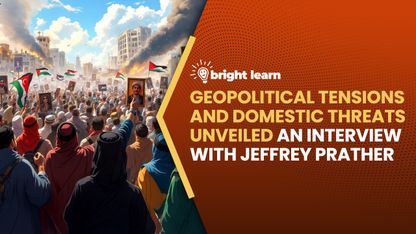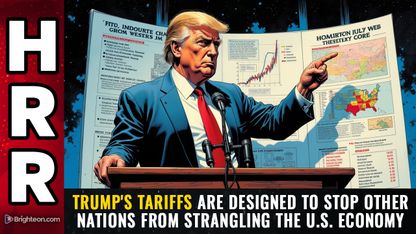
UK prosecutors threaten to police speech and protests globally
In recent weeks there has been significant political and social unrest in the UK, sparked by the tragic stabbing deaths of several young girls in Southport. These girls were knifed to death by a murderous teenager who was part of the last wave of mass migration into the UK. This incident has ignited a series of violent anti-mass migration protests across the country. People are fed up. In response, the UK government has doubled down on their support for unchecked migration, while showing no remorse for the stabbing deaths of the young girls -- citizens -- inside their borders. Since the anti-migration protests began, the UK has adopted a hard-line stance against these demonstrations, aiming to clamp down on what it describes as violent disorder and potential terrorism linked to the unrest. So far, about 400 people have been arrested and 100 face charges.
Now the UK is looking to take on anyone overseas who supports these anti-migration protests, threatening to extradite individuals who speak out of line with their authority. This move, spearheaded by the UK's Director of Public Prosecutions, Stephen Parkinson, and endorsed by Prime Minister Sir Keir Starmer, represents a significant expansion of the British legal system, as they attempt to police the world, well beyond their borders, and through social media channels.
Stephen Parkinson is making headlines by declaring that individuals abroad who support or incite violence related to these protests are not immune from prosecution.
"Some people are abroad. That doesn’t mean they’re safe," Parkinson asserted, highlighting the potential for international extradition and legal consequences, regardless of an individual’s location.
Individuals charged with violent disorder could face up to five years in prison, while those found guilty of rioting could be sentenced to up to ten years. Additionally, the government is prepared to pursue terrorism charges against those involved in planning or inciting serious disruptions for ideological purposes.
Out-of-control UK government targeting social media users and known activists
Parkinson said the British government has established liaison prosecutors worldwide to assist with international collaboration on such cases. Parkinson warned social media users who protest the government’s migration policies “they are not safe and there is nowhere to hide.” This tyrannical move is likely to strain diplomatic relations as it tests the limits of international extradition agreements, free speech and basic human rights.
One of the UK’s most-likely targets is Tommy Robinson, a well-known activist who protests corrupt government policies that enable gang-related activity. He is known as the founder of the English Defense League, which organizes street demonstrations to protest against radical Islamic extremism. He is currently residing in Cyprus. He recently missed a court appearance related to contempt of court charges, and faces an arrest warrant from England’s High Court. UK authorities have not confirmed whether he will be among those targeted for extradition in relation to the recent protests, but it wouldn’t be the first time he was targeted for his speech and activism.
The UK’s initiative to prosecute individuals abroad for their speech and actions related to domestic unrest sets a new precedent and puts pressure on social media companies to censor individuals, much like how the U.S. government coordinated censorship during the COVID-19 scandal. No truth is allowed on the topic. Groups that organized freedom marches and spoke about vaccine injury were censored from social media channels.
The founder of social media company X, Elon Musk, has made his intentions clear on the current matter in the UK. He accused the UK Prime Minister of enforcing a "two-tier" system of policing. Musk points out that Starmer is applying unequal treatment against anti-mass migration protesters while giving the green light to counter-demonstrators from the Muslim community. How will the UK target Musk for daring to speak out of line? Ironically, freedom of speech will be the force that submits the UK government, and politicians there will be forced to deal with the scourges of unchecked migration and the ensuing crime and civil unrest that their policies caused.
Sources include:
Please contact us for more information.

















